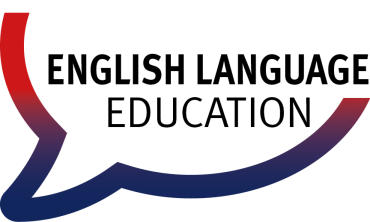

Report on the International Symposium

On 11th June 2021, the international symposium „Fostering and Assessing Oracy in Foreign Language Education: Perspectives from Practice-Oriented and Design-Based Research”, which was organised by the TEFL department of the WWU, was held online. Led by Jun.-Prof. Dr. Julia Reckermann and Dr. Philipp Siepmann, the event shed light onto two significant developments in foreign language research: firstly, it addressed the importance of oracy in foreign language learning and teaching, and secondly, it highlighted the potential, and increasing significance, of practice-oriented and design-based empirical research in foreign language education. The virtual format allowed 36 participants from five countries to participate in a lively and highly productive exchange.
The three keynote lectures by internationally acclaimed experts provided important impulses for the further development of both fields. Prof. Dr. Anne Burns (University of New South Wales, Australia) underscored the use of Action Research for lifelong, research-based learning of practitioners and for systematic reflection and development of classroom practice. Her talk was complemented by Prof. Dr. Susan McKenney’s (Universiteit Twente, The Netherlands) contribution, which demonstrated the potential of Educational Design Research for oracy research and was rich in practical illustrations. The final keynote speech by Prof. em. Dr. Bärbel Diehr (Bergische Universität Wuppertal) put a spotlight on the need to foster oracy from the beginning and provided an insight into various empirical studies that underlined the importance of teaching speaking and listening comprehension in the primary school English classroom.
The six talks of the two parallel sessions offered an impressive overview of the variety of research foci and methodological approaches to oracy in foreign language education. The contributions ranged from conversation-analytic approaches to assessing speaking (Prof. Dr. Barth-Weingarten & Susanne Reinhardt, University of Potsdam) to a design-based research study of genre-based development of speaking competences using methods of drama pedagogy (Dr. Katharina Delius, University of Göttingen).
The innovative format of the keynote coffee, which was organised via the video conferencing platform Wonder.Me, allowed for animated discussions between the participants and the three keynote speakers despite the great distance. Out of these conversations, inspiring impulses were provided for the further development both of oracy research and the methodological discourse in foreign language research. One of the most important take-aways from these discussions was that cooperation between researchers and practitioners makes a valuable contribution both to practical classroom development and to the development of usable theory.
The proceedings of this symposium will be published in an anthology. In the meantime, the conversation about the potential of design-based methods for foreign language research will be continued at the symposium „Bottom-up statt top-down in der empirischen Fremdsprachenforschung: Educational Design Research als Weg zur gelungenen Theorie-Praxis-Integration?“, which will be hosted by Julia Reckermann, Philipp Siepmann and Michael Rogge at this year’s congress of the German Association for Foreign Language Research (DGFF) at the University of Duisburg-Essen.
Symposium
-
Fostering and Assessing Oracy in Foreign Language Education:
Perspectives from Practice-Oriented and Design-Based Research
Date & Time: June 11th, 2021; 9:00 – 17:00
Location: Due to the Covid-19 pandemic, the symposium will be held in an entirely digital format!
Organisers: Jun.-Prof. Dr. Julia Reckermann, Dr. Philipp Siepmann
Registration: Registration is open now. Please register by May 15th, 2021 via indico.
Participation fee: €30 per participant
Conference language: English
For more detailed information take a look at the flyer (pdf-fyle) [en].

We kindly thank our supporters:
- DGFF
- Fachbereich 09*
- International Office*
- English Department*
* of the WWU
About
This one-day symposium will bring together researchers who follow a practice-oriented and/or design-based approach to researching oracy in foreign language learning. The aim of this symposium is to connect the two fields of oracy and practice-led research in order to create synergies for and find innovative approaches to researching oracy in foreign language education. Educational design research and other forms of field-based and practice-led research can make an important contribution to generating theory on the teaching and learning of foreign languages while simultaneously inspiring innovations in practice. This symposium seeks to promote a broad understanding of oracy that includes traditional approaches of receptive and productive foreign language competences, but also embraces digital communication, language varieties, and the fostering and assessing of oracy in heterogeneous foreign language classrooms.
Keynote Speakers:
Prof. Dr. Anne Burns, University of NSW, Australia
Prof. Dr. Bärbel Diehr, Bergische Universität Wuppertal, Germany
Prof. Dr. Susan McKenney, UT Twente, NetherlandsProgramme
All events will take place via zoom with few exceptions.
9:00 – 9:30 Welcome (via Wonder) 9:30 – 10:30 Keynote Speaker Prof. Dr. Anne Burns on Exploring the Teaching of Oracy through Action Research: Teacher's Voices 10:30 – 10:45 Coffee Break (via Wonder) 10:45 – 12:15 Parallel Sessions (view flyer for more detailed information) 12:15 – 13:30 Lunch Break 13:30 – 14:30 Keynote Speaker Prof. Dr. Susan McKenney on Educational Design Research for Oracy Development: Why, What and How? 14:30 – 15:30 Keynote Coffee (via Wonder)
Key issues of the symposium are discussed with the keynote speakers in a casual setting, with coffee and cake on the side.
15:30 – 16:30 Keynote Speaker Prof. Dr. Bärbel Diehr on Start Small, Build Tall: Insights from Studies with Young EFL Learners 16:30 – 17:00 Concluding Remarks and Farewell


